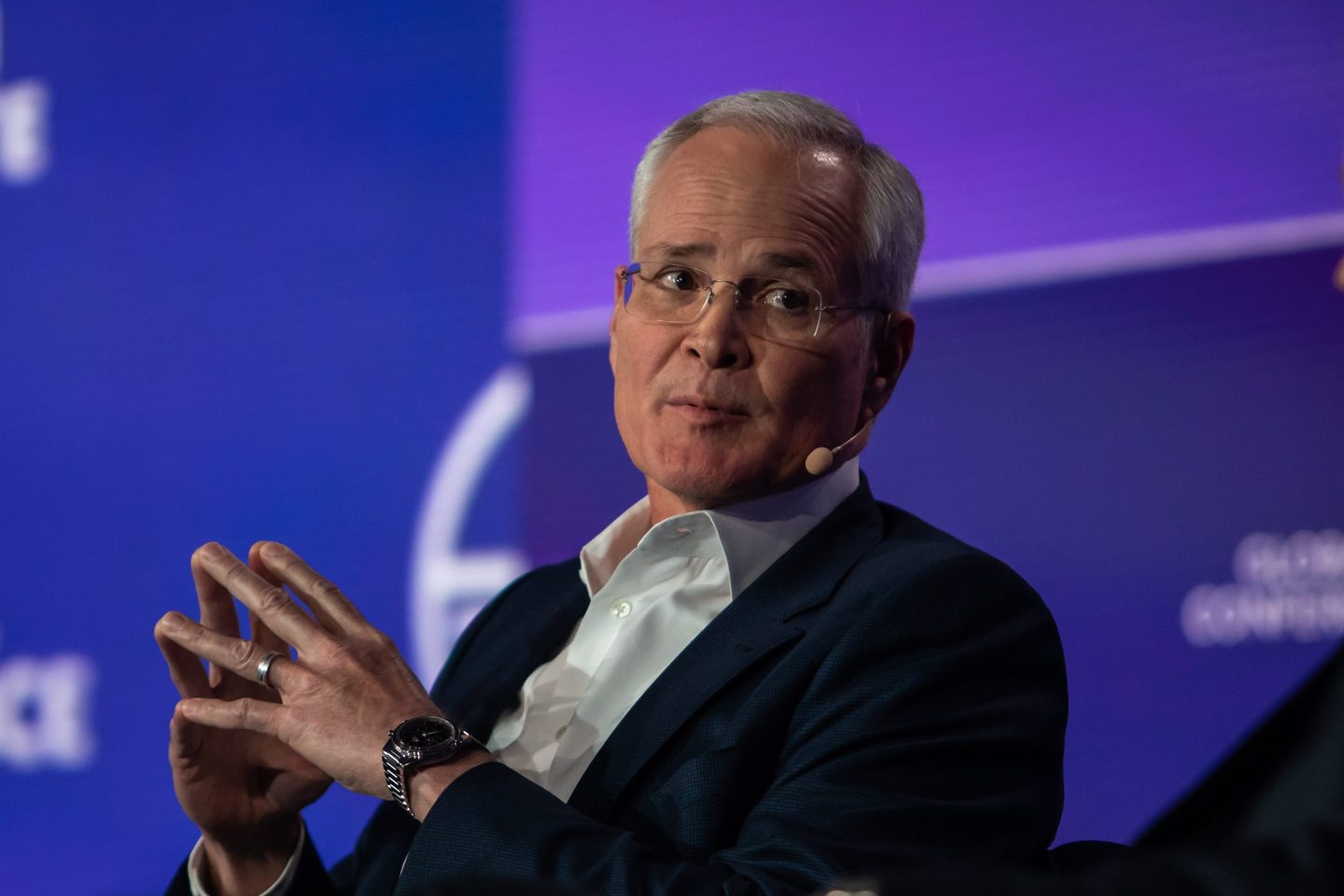Good morning. The Securities and Exchange Commission released its mandatory climate-risk disclosure rules for public companies last week, a process that included consideration of more than 24,000 comment letters received over the last two years.
To learn more about the agency’s decisions, I reached out to Kristina Wyatt, formerly senior counsel for climate and ESG at the SEC and now the chief sustainability officer at Persefoni, a software startup that provides a climate management and accounting platform. Wyatt shared the top takeaways for business leaders.
—The SEC is not requiring Scope 3 greenhouse gas (GHG) disclosures
How companies measure GHG emissions is based upon their activities, which are broken down into scopes, Wyatt explained. Scope 3 emissions are those not produced directly by a company but from activities in its value chain, and being held accountable for them concerned many executives.
“There was a lot of pushback from the business community,” Wyatt told me. “Scope 3 tends to constitute the vast majority of most companies’ emissions profile, and it was certainly perceived to be quite important at the proposal stage.”
Additionally, Wyatt noted, the investment community “fervently supported” the inclusion of Scope 3 emissions. “So much of the regulatory world has moved in the direction of requiring it. The only reasonable conclusion I can draw is that the commission felt a lot of pressure to water down the rule.”
—Large companies will have to disclose Scope 1 and Scope 2 emissions
Companies with a public float of at least $700 million, and accelerated filers, companies that have a public float of between $75 million and $700 million, must report Scope 1 emissions, which are direct emissions associated with a company’s own activities such as transporting goods.
Scope 2 emissions, which are those associated with the production of energy purchased by companies, also must be disclosed, Wyatt noted.
—Required reports will be rolled out over time
Registrants will be required to file an attestation report disclosing Scope 1 and 2 emissions. Those reports, SEC Chair Gary Gensler said in a statement, will improve “accuracy and reliability of those metrics as well as the key assumptions, methodologies, and data sources.”
“Accelerated filers will have to get limited assurance within three years of their initial reporting of their greenhouse gas emissions,” Wyatt explained. “And large accelerated filers will have to go one step further—another four years after that, they’ll have to move on to reasonable assurance, which is a higher level of assurance.”
—A framework based on TCFD
Companies will need to disclose the identification, management, and oversight of climate-related risks in line with Task Force on Climate-related Financial Disclosures (TCFD) recommendations, Wyatt said. This means the costs of climate risks, the governance around climate risks, and the disclosure of offsets and renewable energy certificates involved in climate transition plans will be included as footnotes in financial statements unless deemed “de minimis”—defined as less than 1% of the relevant financial statement category.
“All of this is to just try to put in investors’ hands information that will be useful to them in understanding the costs associated with both physical weather events and the company’s plans with regard to how it’s going to meet its climate-related goals,” Wyatt told me.
What will this mean for CFOs?
“We’re seeing that, in some cases, the CFO’s office is kind of taking ownership of this information because it has a financial impact,” she explained. “In some cases, we’re seeing that the chief sustainability office still has sort of primary control over this information, but increasingly they’re working closely with the CFO’s office, with the controller, with the general counsel and other departments.”
Some firms also are adding ESG controllers or to the mix, Wyatt said.
—Reporting will be more flexible
GHG disclosures will be required either in a company’s second-quarter 10-Q or in an amendment to the company’s 10-K filed in Q2, which gives companies more time to compile their data, Wyatt said. The first reports from the largest companies are expected in 2026 and will be “based on fiscal year 2025 numbers,” Wyatt said. Allowing for more flexible reporting “was a recognition that many commenters, particularly on the corporate side, said that it would be very difficult to gather this climate-related data—and particularly the greenhouse gas emissions data—and report it on the normal 10-K cycle.”
Sheryl Estrada
sheryl.estrada@fortune.com
María Soledad Davila Calero curated the Leaderboard and Overheard sections of today’s newsletter.
Leaderboard
Yves LePendeven will serve as acting CFO of the toy company Funko (Nasdaq: FNKO) starting March 15. LePendeven, who’s currently serving as deputy CFO, will take over from Steve Nave who resigned from his role as CFO and COO.
Michael Sparks was named CFO for the Denver-based mining company SSR Mining (Nasdaq: SSRM) after Alison White resigned from the company. Sparks is currently serving as chief legal and administrative officer and executive vice president. Sparks has extensive experience in public company reporting, compliance, and business integration, among other areas.
Big deal
Weber Shandwick, Powell Tate, and United Minds, in partnership with KRC Research, surveyed American consumers and employees on the role of business in national elections. Most consumers and employees expect businesses to speak up about and act on critical societal issues. However, the majority of respondents do not support employer engagement in explicitly political activities, according to the report.
The top five actions employers can take that have the most support: keep the workplace politically neutral; respect different employee political affiliations; create policies for a workplace free of political tension; provide paid time off to vote; and avoid politics or the appearance of politics in the workplace.

Going deeper
Finance leaders should consider addressing employee engagement issues by showing gratitude and by developing a culture of gratitude in their function, according to a new report by Gartner Inc.
“Finance leaders who are facing issues with staff engagement should know that leading with gratitude is an often-overlooked way to improve engagement,” Rob O’Donohue, VP and analyst at Gartner, said in a statement. “It is entirely in their hands—no new approvals or budget are needed.”
A successful “gratitude attitude” can entail peer-to-peer gratitude shares, according to the report. For example, leaders can dedicate the first five to 10 minutes of each team meeting to appreciation. “Leaders should go first, but the real power comes when team members give thanks to each other for support they’ve received recently,” according to Gartner.
Overheard
“Even though health insurance costs are the second-largest line item after payroll, CEOs don’t really understand it or know anything about it.”
—Entrepreneur and Cost Plus Drugs cofounder Mark Cuban told Fortune after a roundtable at the White House to discuss lowering health care costs. Cuban argued that even employees with coverage for themselves and their families still stress over whether medications and treatments recommended by doctors will be approved by the insurance companies.
This is the web version of CFO Daily, a newsletter on the trends and individuals shaping corporate finance. Sign up for free.












